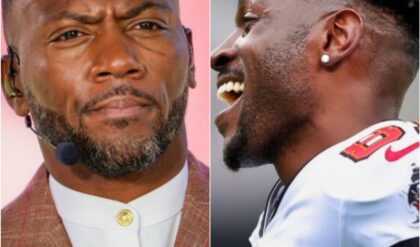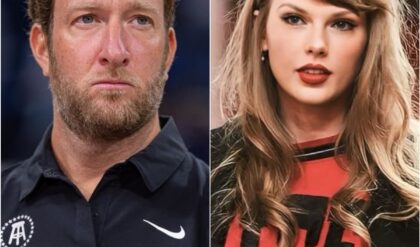In the realm of celebrity gossip and intrigue, few names evoke as much curiosity as that of Sean “Diddy” Combs.

From his music mogul status to his lavish lifestyle, Diddy’s life has been a subject of fascination for many.
However, recent revelations surrounding his former assistant, Fonzworth Bentley, have added a new layer of complexity to Diddy’s enigmatic persona.
The controversy erupted when Jaguar Wright, a former associate of the music industry, made startling claims about Bentley’s relationship with Diddy.
According to Wright, Bentley served as more than just Diddy’s assistant; he was allegedly Diddy’s “concubine master.”
While Bentley has since moved on to a family life in Atlanta, Wright insinuated that.
His relocation may be linked to his past association with Diddy and hinted at a deeper, more complex relationship between the two men.
Fonzworth Bentley, born Derek Watkins, first gained attention in the early 2000s as a rapper and later as a stylist and consultant.
He became known for his refined style and impeccable manners, earning him the role of Diddy’s personal assistant.
Bentley’s presence, often seen carrying a large umbrella for Diddy, became synonymous with Diddy’s image during his transition from Puff Daddy to P. Diddy.
However, rumors and speculation suggest that Bentley’s role extended beyond mere assistance.
Wright’s allegations imply a more intimate connection between Bentley and Diddy, with suggestions of a “concubine master” dynamic.
While these claims remain unverified and unsubstantiated, they have sparked intense speculation and debate within celebrity circles and among fans.
Wright’s assertions shed light on the secretive world of celebrity relationships and the power dynamics that often accompany them.
The notion of a prominent figure like Diddy engaging in clandestine affairs with his associates raises questions about loyalty.
Integrity, and the blurred lines between professional and personal boundaries in the entertainment industry.
Furthermore, Wright’s commentary delves into broader issues surrounding masculinity, seuality, and identity.
She suggests that Diddy’s alleged behavior may be indicative of a larger pattern within the industry.
Where individuals struggle to reconcile their public personas with their private desires.
The implications of Wright’s claims extend beyond mere gossip, touching on deeper societal issues such as seuality, power dynamics, and the exploitation of relationships for personal gain.
The notion of Diddy, a powerful and influential figure, engaging in clandestine affairs with his associates raises questions about ethics, consent, and the abuse of power within the entertainment industry.
Moreover, Wright’s commentary underscores the importance of accountability and transparency in relationships, both personal and professional.
The allegations against Diddy and Bentley highlight the need for greater scrutiny.
And awareness of the dynamics at play within celebrity circles, where secrecy and privilege often shield individuals from scrutiny and consequences.
As the controversy continues to unfold, the public awaits further revelations and insights into the true nature of Diddy and Bentley’s relationship.
Whether Wright’s claims are proven true or not, they serve as a stark reminder of the complexities and contradictions inherent in the world of fame and fortune.
In the end, the story of Diddy and Fonzworth Bentley serves as a cautionary tale about.
The perils of unchecked power, the consequences of secrecy, and the enduring allure of celebrity culture.
Only time will tell what truths lie beneath the surface of this captivating saga





